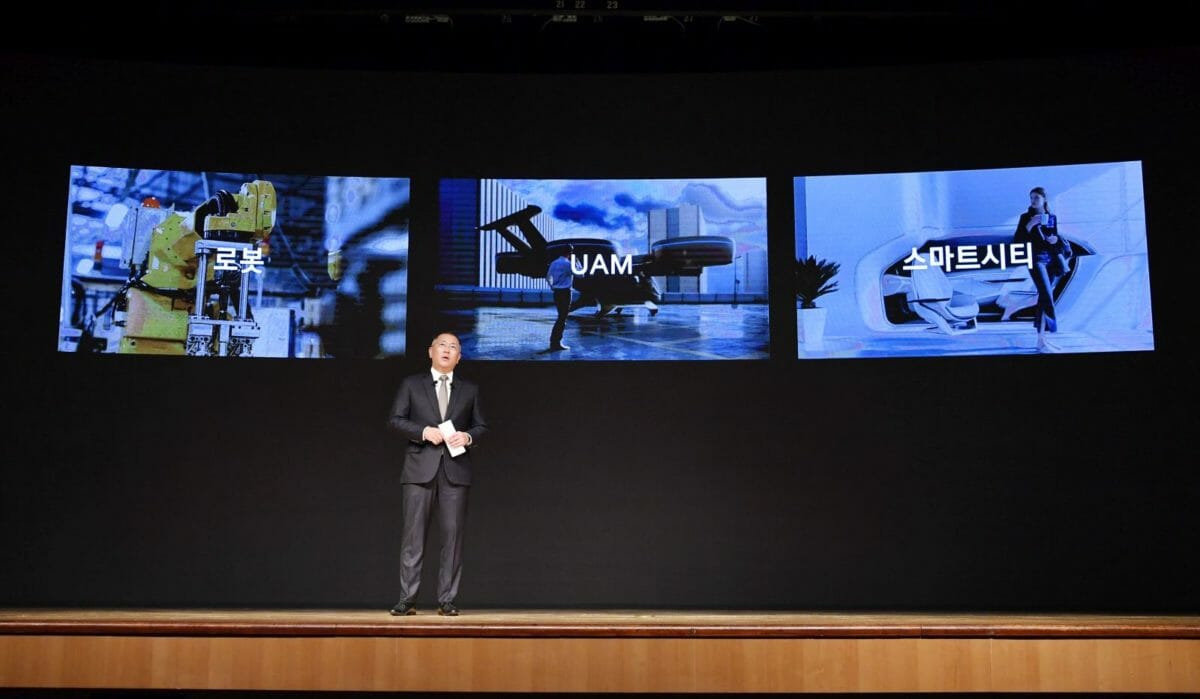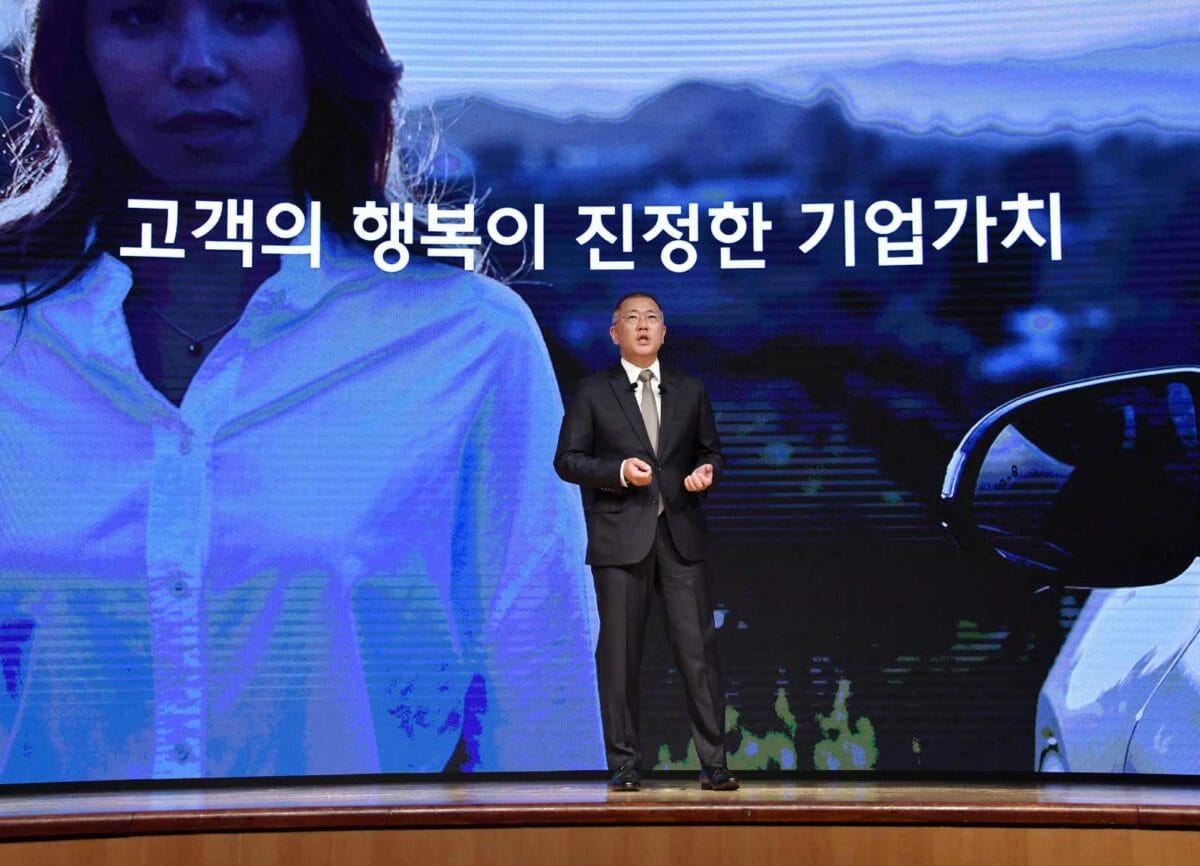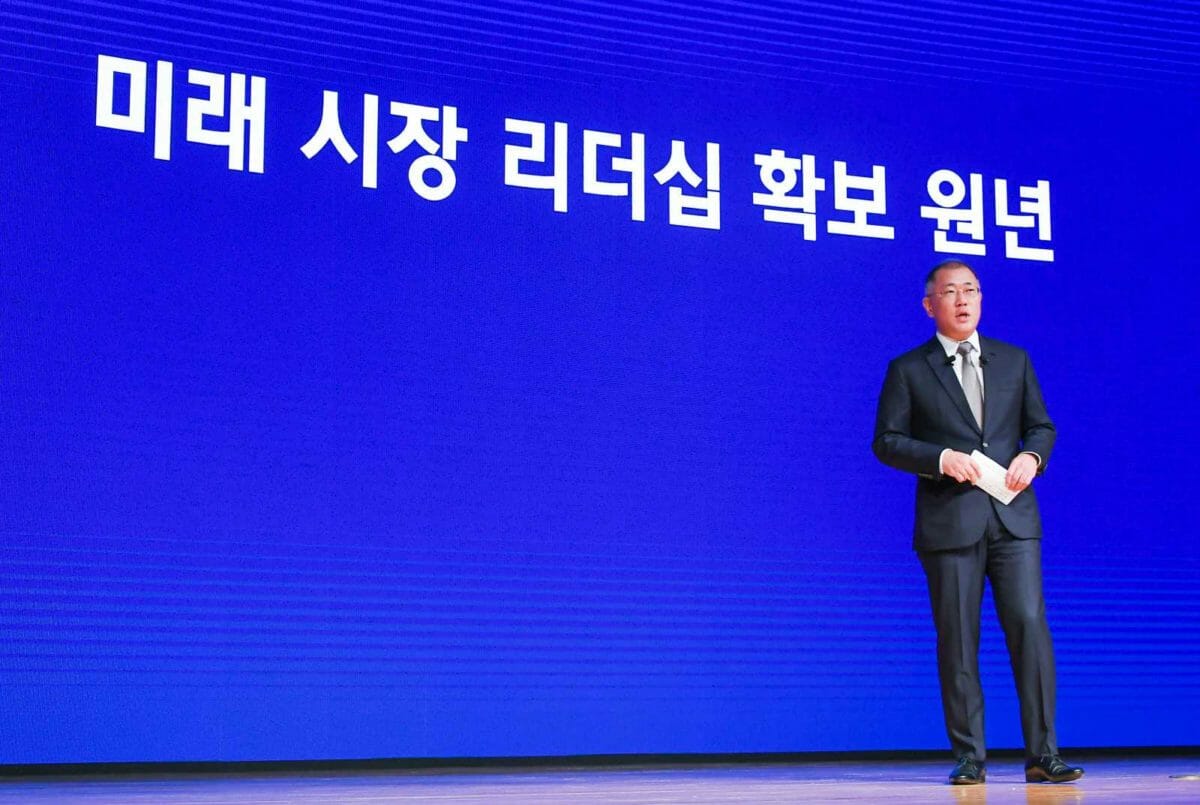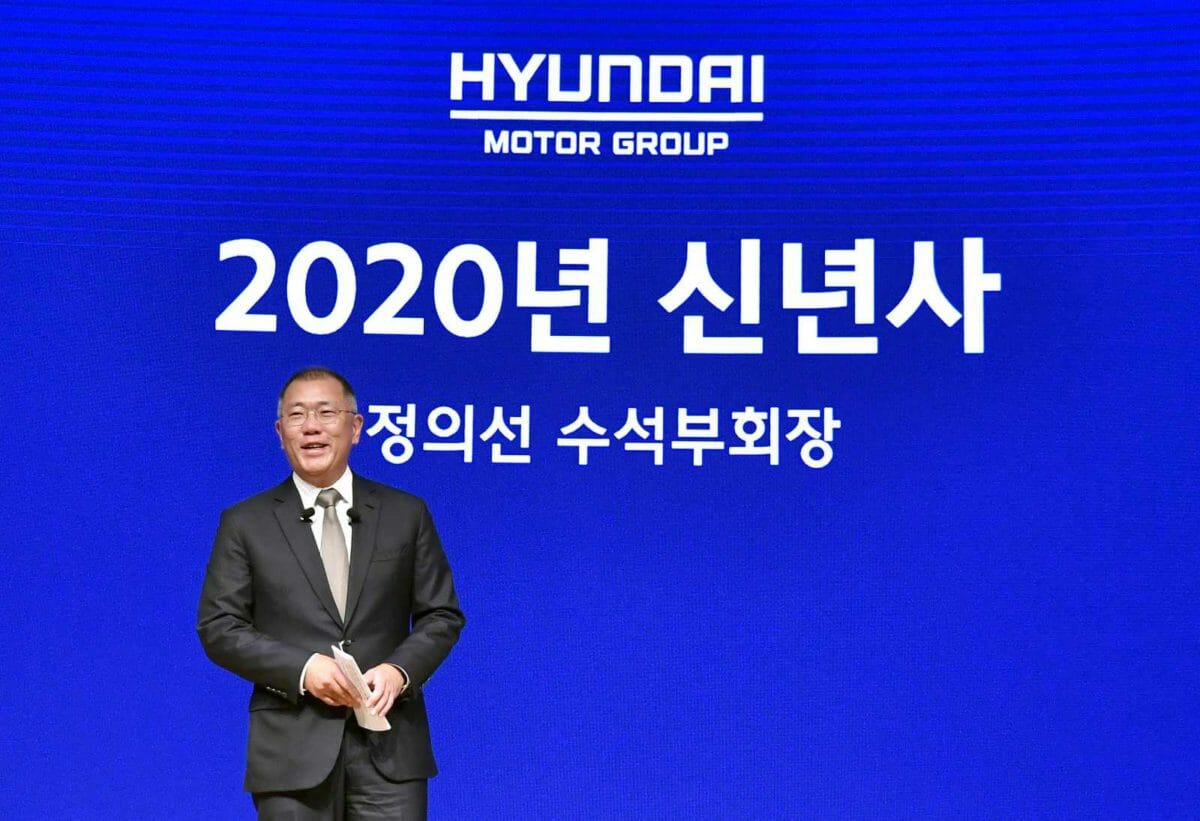The Hyundai Motor Group held its 2020 New Year ceremony at its headquarters in Seoul, outlining its innovation priorities and strategic plans for this new decade. The Korean giant will mark the new year as a starting point towards its market leadership commitment. In his new year’s address, Executive Vice Chairman Chung announced the group’s business direction for the future.
He highlighted the Group’s key objective as “taking a leap as a game-changer capable of setting the rules of the market.” The objective has served as a guiding principle for the Group’s comprehensive transformation covering everything from large-scale investments and partnerships to micro-level operations, as effectively carried out throughout 2019. Building on these improvements, Chung indicated Hyundai’s strong desire to produce tangible results in future business areas starting from 2020.
Also Read: Hyundai To Showcase Human-Centered Future Mobility Vision At CES 2020
He shed light on the Group’s commitment to continuing its leadership in future industries such as electrification, autonomous driving and mobility services, as well as its efforts to enhance the quality of its business operations in all sectors. Also included in the 2020 New Year’s message was the plan to actively pursue new technologies and projects that can provide human-centred smart mobility solutions in a wide range of areas, including robotics, Urban Air Mobility (UAM) based on the use Personal Air Vehicles (PAV) and smart city solutions, all of which would progress alongside automobile-based innovations.
The Group’s electrified lineup, which comprised 24 models in 2019, will be expanded to 44 models by 2025, including 13 hybrids, six plug-in hybrids, 23 battery electric vehicles and two fuel- cell electric vehicles. In particular, the BEV lineup will increase to 23 models by 2025 from last year’s nine models, with the first dedicated BEV model to be launched in 2021. A new EV architecture development system will be introduced and applied to models slated for launch in 2024. This year, the Group will add hybrid and plug-in hybrid variants to its best-selling SUV models, including Kia Sorento, Hyundai Tucson and Hyundai Santa Fe.
In 2019, the Group signed an agreement with Cummins Inc., a global leader in the engine and generator fields, to jointly develop and commercialize electric and fuel-cell powertrains combining Hyundai’s fuel-cell system and Cummins’ electric powertrain, battery and control technologies. The Group will start exporting its fuel-cell systems to Cummins and enter the U.S. market this year, followed by the European market. In the future, the Group plans to supply fuel-cell systems to the transport sector – covering vehicles, vessels, railcars and forklifts – and power-generation sector – covering electricity production and storage. The Group will simultaneously establish a 500,000 units-per-year capacity for FCEV production in Korea.
The Hyundai Group will strengthen its cooperation with partners in Korea such as Hydrogen Energy Network (HyNet), as well as partners overseas including Saudi Aramco to expand the supply of hydrogen and charging stations. In addition, the Group will broaden its strategic collaboration with related enterprises around the world to set up hydrogen infrastructures. The Korean giant aims to accelerate the development of the autonomous driving software technology and commercialize self-driving vehicles with SAE Level 4 and Level 5 technology in the near future to lead the industry. After developing an autonomous driving platform by 2022, the Group will operate autonomous vehicles in select regions in 2023, and lead to commercial productions by the second half of 2024.
For India, the Group will expand collaboration with mobility platform companies it has strategically invested in, such as Ola. HMG will launch new mobility services in collaboration with Ola, and in Southeast Asia, offer EV car-hailing services by expanding the supply to the region’s largest car-hailing firm, Grab. The Group supplied 200 units of Hyundai Kona Electric SUVs to Grab last year for its car-hailing service in Singapore and will expand the coverage to major Southeast Asian countries such as Indonesia this year.
Through a new EV architecture development system, Hyundai Motor Group will innovate its cost structure for electric vehicles by sharing components in their application to various models. It will also increase profitability and volume of each model through lineup optimization. It will streamline operation networks and introduce new sales methods while securing a flexible production system that can respond to the fluctuating global demand.




